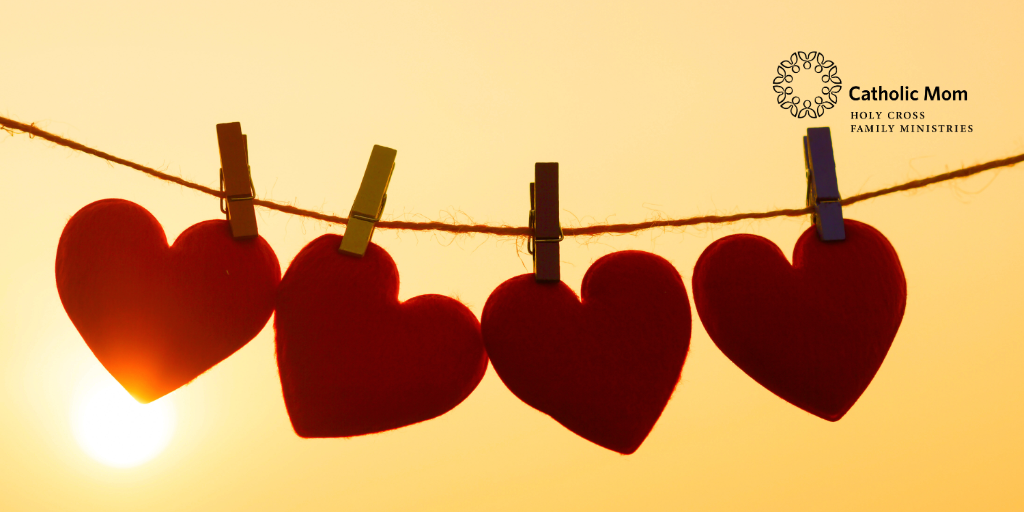
Inspired by a poem by a Jesuit priest, Elizabeth Reardon considers an Ignatian approach to contemplating the depth of love and the Author of love itself.
This essay is inspired by the poem "Fall in Love" by Joseph Whelan, SJ.
They say, “Do something you love and you will never work a day in your life!”. Not everyone can boast of this in regard to their job, but perhaps to do so is thinking on too small of a scale. Or, at the very least, placing our happiness in the wrong hands. For, why limit our happiness to the hours of nine to five or base it solely on the work of our hands? Why not instead, look at your last 24 hours, and consider it all — the sunrise, the conversations had, the movements of our hearts, and the very gift of life itself?
Having been asked to visit and bring Communion to someone new, I found that this last stop of the day would indeed be the most beautiful gift. A woman in her 90s, she was no longer able to drive, and only on occasion left her small apartment. Yet at the door, I was greeted with the warmest smile and with a heart full of joy. We spoke of life, and death that day, of love and loss, and the source and sustainer of all ... Jesus. He had indeed brought us together, and at one point we found ourselves holding hands with tears in our eyes and with gratitude in our hearts. I realize that God allowed us to get past the casual formalities and to plunge deep into the well of our mutual faith and love for Him. I have fallen in love with God and so had she, and that was the only bridge necessary.

More By Deeds Than Words
When we think of love, we easily confuse or generalize its meaning to apply to a host of things in a variety of ways. For instance, a love of ice cream would, hopefully, be drastically different from its use when speaking to our spouse or child. Yet, we speak of love so commonly that a richer meaning can get lost. In fact, “Love ought," as St. Ignatius would point out, “manifest itself more by deeds than by words” (The Spiritual Exercises of Saint Ignatius 230). This we know all too well, when words without depth or meaning fall short, and momentary happiness dissipates when competing interests arise.
The love that Ignatius speaks of then is intentional, one that inspires us to greater deeds that we ever thought possible or that we could ever do on our own. It is out of God’s own love for us: poured out, and experienced in our own lives that we can grasp what this love lived out is like. It is sacrificial, but life giving and affirming, and it does as Father Whelan so aptly puts it, “seizes your imagination” and “amazes you with joy and gratitude.” Moreover, this agape love, as a true offering of self, is never intended to be solitary but mutually shared (Spiritual Exercises 231), the free giving of one’s very self to the other.
God’s Love for You
Does it surprise you to imagine God in this way? The Creator of the universe Who is amazed by YOU, Who sees YOU and is filled with joy and gratitude. One who longs to fit within your day, or better yet, to be invited into your first thoughts, movements and stirrings of your heart. And, conversely, the One whose heart breaks at the all too normal reality that we can find ourselves simply too busy to fit or seek Him within our day.
Still, making space within our day to seek God is the very beginning of falling in love. For it is then, that we can become attentive to the desires of our heart, and the sound of His voice in response. As we delight in His creation, He delights in us, loving to surprise us even in the smallest of ways. And our gratitude and praise is our gift in response to God’s gift of self to us. While God is never outdone in generosity, it is certainly a challenge worth accepting!

What is it that has nourished your soul and inspired you to greater love today? What was your response? If you feel that you haven’t taken time to thank God yet … remember, it’s not too late!
Share your thoughts with the Catholic Mom community! You'll find the comment box below the author's bio and list of recommended articles.
Copyright 2025 Elizabeth Reardon
Images: Canva
About the Author

Elizabeth Reardon
Elizabeth Reardon is Director of Parish Ministries and Pastoral Associate for the Collaborative Parishes of Resurrection & St. Paul in Hingham, Massachusetts; a wife and mother of three; certified spiritual director; and writer at TheologyIsAVerb.com. Her writing is an invitation to seek and create space for God in the midst of the busyness of everyday life.


.png?width=1806&height=731&name=CatholicMom_hcfm_logo1_pos_871c_2728c%20(002).png)
Comments